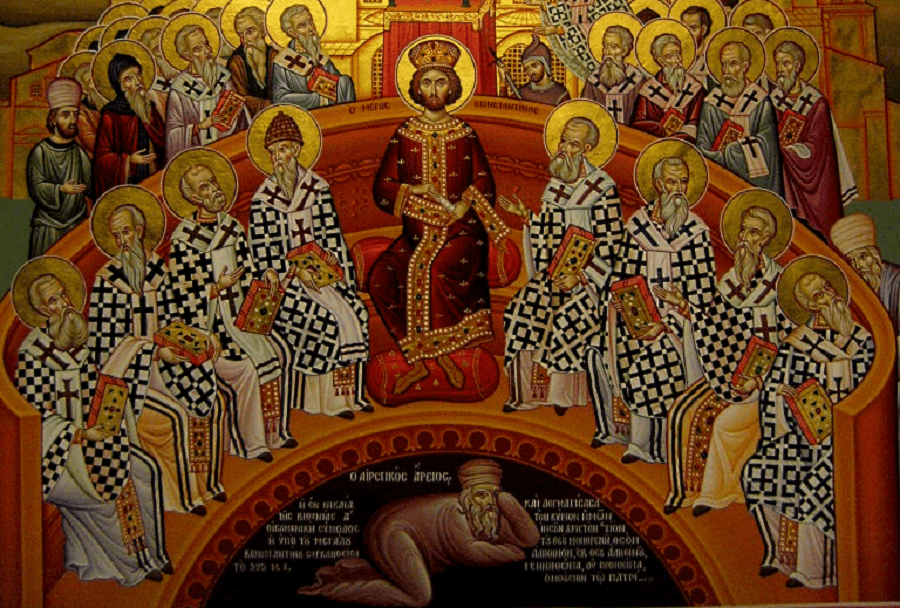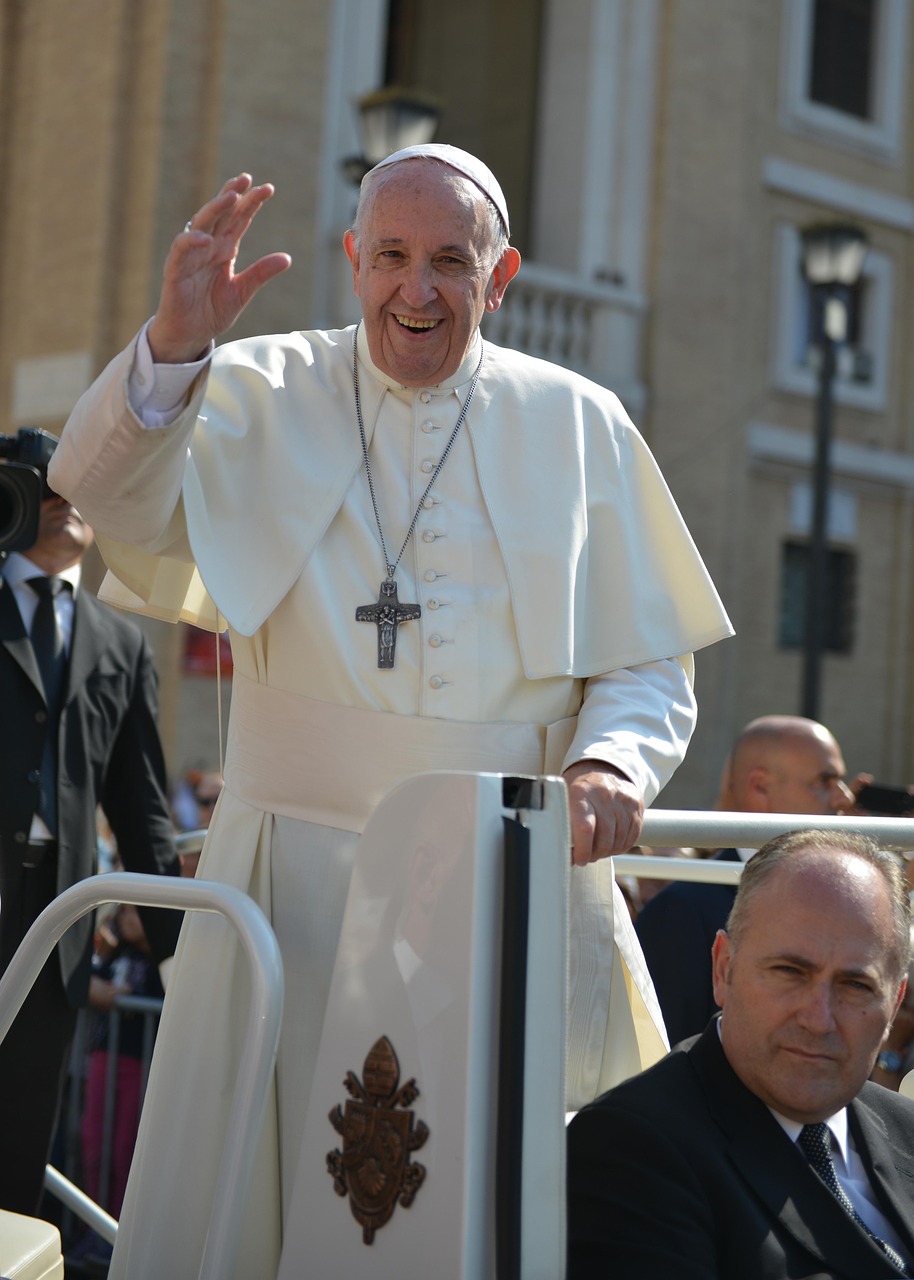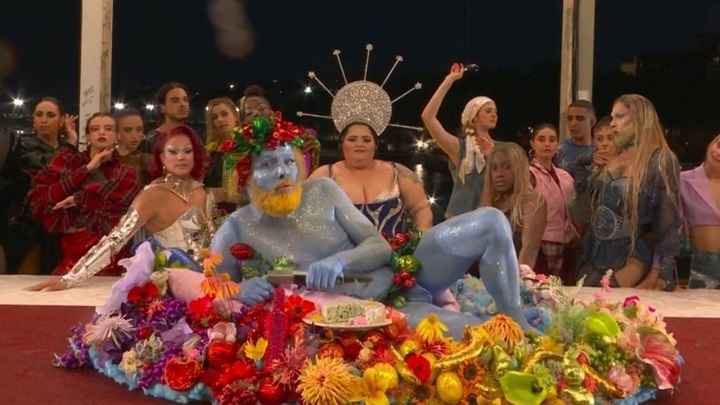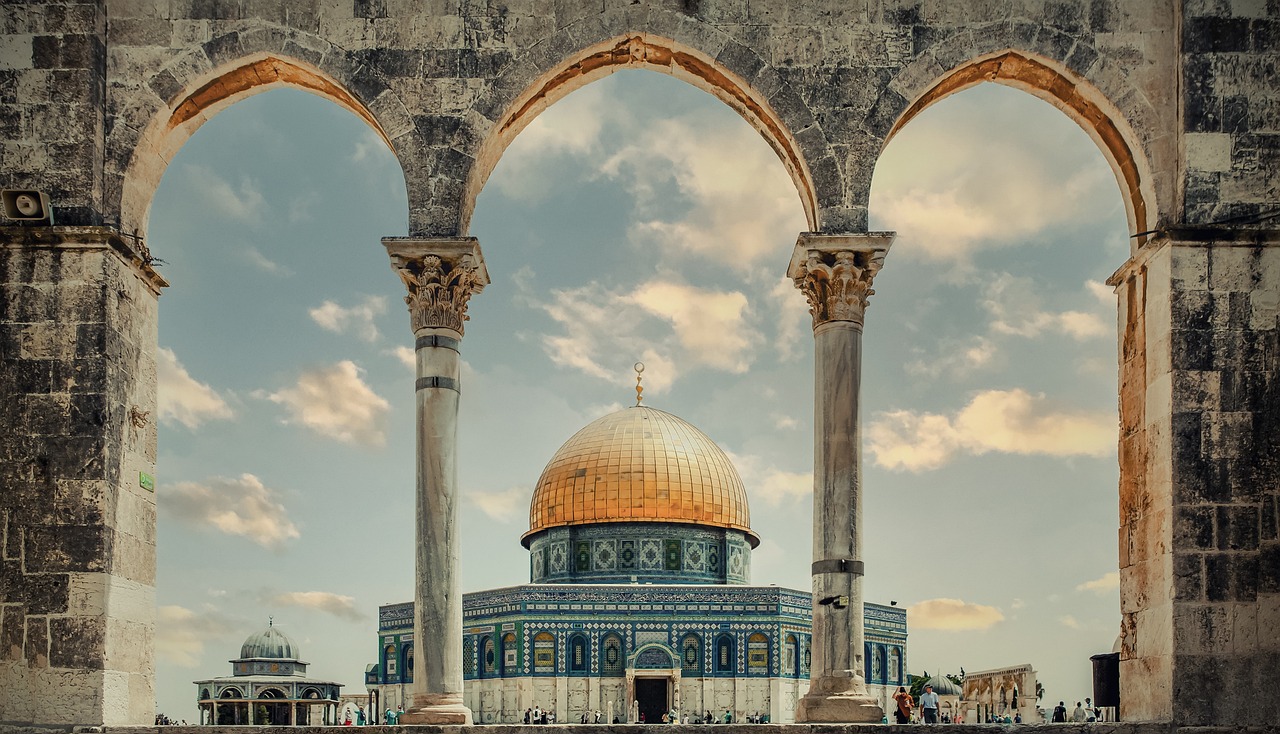
On May 20 (375), the Council of Nicaea began, which would than define the divinity of Jesus and the Trinitarian dimension of the Christian God. Heiner Wilmer, Catholic bishop of Hildesheim (Germany), shows how significant ideas for restoring strength and substance to our democracies in crisis are hidden in the structural folds of this Christological dogma (a first draft published in Herder Korrespondenz).
In his book Does Democracy Need Religion?, Hartmut Rosa identifies the “whirling stagnation” characteristic of our Western societies as the reason for the aggressive stance toward the world, the environment, and others that dominates our social relations and interactions. “The other, who always holds a different opinion, who loves and believes differently, (…) is merely an obstacle to me. They must be silenced. (…) Those who think politically differently are no longer seen as dialogue partners but as repulsive enemies to be muted.” (H. Rosa)
This pervasive atmosphere of aggression and erasure of all “otherness” undermines the foundational condition of democracy: not only the legitimacy of others’ speech but, more radically, the capacity for diverse voices to be heard and listened to by the body politic.
The Silenced Voice of the Other
This tendency to erase voices that think and speak differently from our own has another grave consequence for democratic order: it renders superfluous any reasoned argument or justification that might persuade those who disagree. In this way, critical thought and judgment wither, and with them fades the vitality of the human spirit that made the modern adventure of democracy possible.
All this might seem far removed from the Council of Nicaea, but perhaps things are not quite so simple. Perhaps that Council has something important to say to our time—and we can learn from it more than we might imagine.
For Nicaea is the fruit of decades of theological debate that sought to articulate the mystery of God faithfully. The Council’s outcomes would not have been possible without the challenge of what would later be declared heresy. Without the theological rigor of Arius’ arguments or the adoptionists’ claims, it would have been impossible to develop an orthodox faith that has endured through centuries and human struggles—continuing to engage the finest interpretations of the Gospel to this day.
As Giovanni Moioli, a great master of Italian theology, observed, the Church produces its most profound norms when confronted with an “otherness” of thought that argues, at the highest level of human spirit, for a possible alternative—a different way of naming the unfathomable beauty of the God of Jesus.
This is Nicaea’s enduring legacy for the impoverished state of thought in our time: never fear those who think differently, nor dread the strength of their arguments, for these are indispensable to refining your own reasons, expressing them persuasively, and casting even a glimmer of light on a truth no formulation can ever exhaust.
The Challenge of the Other’s Voice
Even in defining orthodoxy, alternative thought and its arguments do not vanish or fall silent forever. They continue to resonate within the very norms that oppose them, for those norms were nourished by engagement with them.
This paradox holds a lesson for our era, where we assume that from the other—those who love, believe, or politically oppose us—we can learn nothing, and they must be silenced indefinitely.
When we accept the challenge posed by differing viewpoints, when we spur one another to articulate the strongest possible arguments, we activate cultural processes that span millennia and shape human history. Like Nicaea, which remains a relentless spur to the Christian faith’s intellectual vitality.
The One or the Womb of God?
Defining the divinity of Jesus, the incarnate filial Logos of God, still demands that we think of God in a way that engages the highest capacities of reason. To remain faithful to the Gospel, Nicaea destabilizes the safest assumption of philosophical monotheism: a solitary God devoid of relationships and affections. Not the “unique” God of Stirner, but the Trinitarian God hinted at in Jesus’ story—leaving to future faith the task of probing this mystery.
The God of generation, finally freed from the despotic omnipotence of solitary eternity, for whom relationships are not irrelevant accidents but shape His innermost being. To generate is to bring into being what might never have existed, yet without which nothing exists. Thus, the God of Jesus wills to be this from the beginning. It is within this mystery that the Logos-made-flesh learned the incompatibility of all despotism with the womb that generated Him.
Here, Christianity continually rediscovers the difference between the God of the Gospel and the Pharaonic God of absolute, merciless dominion. The Christian faith’s distance from all absolutism—political or cultural—finds its raison d’être in the theology of generation, as well as the critical measure to which it must adhere.
The temptation of the “One,” the strongman ruler, always beckons to the unquiet monotheism of a lonely God. Nicaea is Christianity’s antidote to this temptation. Its shocking news: God has never been alone. His being is a play of wills finding themselves in one another, made flesh on the margins of the world—in an irrelevant Judean village.
God on the Margins
Nicaea compels us to seek God in irrelevance, not power; on the margins, not in centers of authority: in the carpenter’s son, not the reigning Caesar. The imperative to love humanity’s forgotten, the marginalized, the vulnerable—whom our delusions of omnipotence would erase from civil coexistence—is not a political deviation of Christian faith but the deepest fidelity to the generation of the filial Logos that Nicaea places before Christianity as non-negotiable. A God who dwells on the world’s edges, carried by a marginal Jew.
To enter the margins of the world, to feel them as the place where one must be (even for the Church), is not the ideology of a pope from Latin America but the centuries-old legacy of a Council that still shapes history. “The ‘we’ that inhabits marginal space—not a site of domination but of resistance. Enter this space. Often, discourse about ‘others’ annihilates, erases. There is no need to hear your voice when I can speak of you better than you can. Just tell me your suffering. I want your story. Then I will retell it anew. I will make it mine. Rewriting you, I rewrite myself. I remain the author, the authority. I remain the colonizer.” (B. Hook)
It is Nicaea’s homoousion (of the same substance) that situates the Christian God on the margins, making Him their inhabitant—so that He may never colonize the human: neither our thought nor our living.
Redemption of Finitude
The God of Jesus does not narrate the suffering of marginalized bodies in the third person but lives it as His own in the flesh of the filial Logos—He inhabits it and claims it forever in the body of the Risen One.
Thus, the redemption promised by the Gospel will never be liberation from flesh and its finitude but liberation of the flesh and the joyful destiny of our finite humanity: “That circling which, thus conceived, / appeared in You as reflected light, / once gazed on by my eyes a little while, / within itself, of its own color, seemed / depicted with our human likeness, so that / my sight was wholly given to it.” (Dante, Divine Comedy – Paradise, XXXIII 127-132)
This also means liberation from the obsession with an anthropology of perfection that looms ruthlessly over our fragile existences (whether ecclesiastical or technological). Humanity, marked by limits and imperfections, is God’s passion—the object of His most intimate affections—destined for a life unconsumed and a joy that never exploits the other but delights in their existence, different from our own.
Nicaea today urges a radical revision of our culture, obsessed with perfection and the inadmissibility of error, to find a path toward reconciling with the vulnerability we all share—without exception. “Vulnerable” is not an adjective for a special group (the “others” of Bell Hooks) but the profound condition of our shared human existence.
Against the Anthropology of Perfection
In truth, we are all vulnerable “because no one holds sovereignty over life; we do not enter it by our own decision but find ourselves already placed within it, beyond any choice of ours.” (L. Mortari)
The loss of this sovereignty—through an origin beyond our control and a joyful destiny that surprises us as a hoped-for gift—is the liberation and redemption our age deeply needs. Only by reclaiming vulnerability as fundamental to the conditio humana can we free not only human relationships but also our political communities from the violent despotism that increasingly defines them.
To assume that some hold sovereignty (over life) while others do not opens the door to relentless totalitarianism—as Foucault reminds us: “Anyone, provided they are skilled, can become a terrible, lawless monarch to another: homo homini rex; an entire political order is woven into the fabric of the everyday.”
By binding God’s being to His Trinitarian constitution, making Him inhabit the margins of the world and the human, immersing Him in the vulnerability we are without loss of Himself, Nicaea opens a political space of hospitality and esteem—a task each generation must take up anew.
Yes, all institutional and political systems pass away. But the provocations from this ancient ecclesial assembly invite us to think carefully before abandoning democracy for the refuge of force and power that exploits our fears. Perhaps Nicaea still has something to say to us all—commonly human beings.









